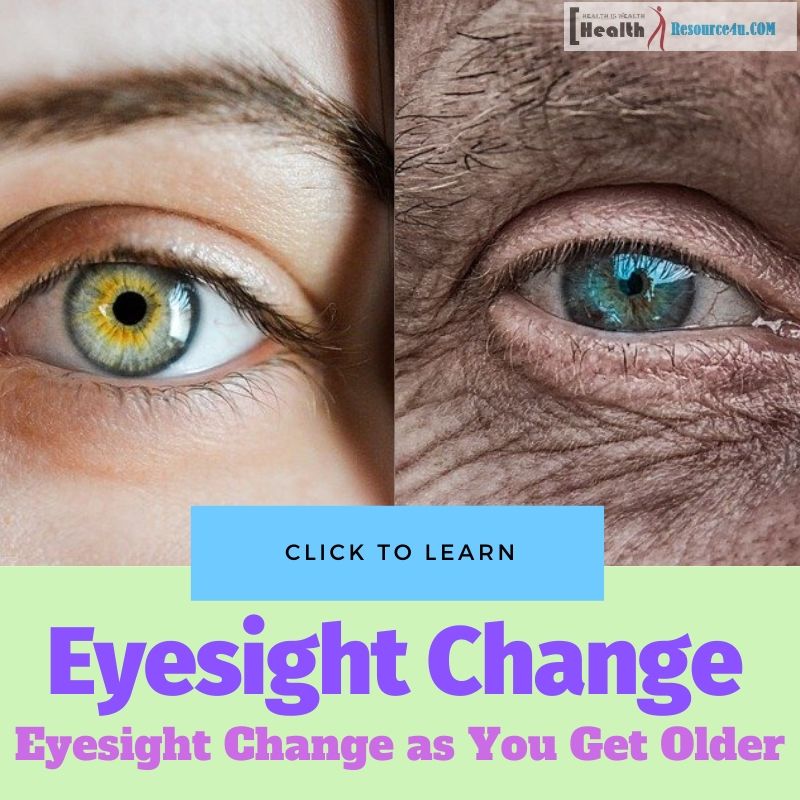Unfortunately, aging is something you cannot avoid and as you get older, you may start to notice changes in your health. One such area that can be affected by age is your vision. Changes in your vision as you get older are usually normal, but if you are worried then you should always see your optician for further advice.
You may become more susceptible to vision changes and eye conditions as you get older. You must be able to understand why these changes happen, and how to recognize any signs or symptoms of eye conditions and other changes to your vision.
If it is normal then it’s totally fine but you may experience several serious eye diseases such as glaucoma, macular degeneration and diabetic retinopathy, which will affect your eyes tremendously as you grow older. So, to help out with these deadly eye diseases and make your eyesight condition better, we are here with this article to inform you about why your eyesight changes as you get older and what you can do to protect it.
Vision at 40 years old
Table of Contents
Around the age of 40, you might notice your near vision becoming blurry. This is a very common change and is known as presbyopia or age-related farsightedness. It happens to everyone and is a normal result of aging, so you are not alone.
Presbyopia is the process whereby the lens in your eye loses its flexibility and becomes harder, which makes it more difficult to focus on close-up objects. You may notice signs of presbyopia such as having to hold things at a distance to see them clearly, headaches and poor vision in low lit conditions.
There is an easy solution for presbyopia and this simply involves wearing Varilux lenses to allow you to see near, far and intermediate distances with ease. Wearing corrective lenses for presbyopia means you no longer have to struggle to see things at various distances.
Presbyopia is usually diagnosed during a routine eye examination, so it’s important to visit your optician regularly.
Vision at 60
pixabay.comAs you get older, your risk of developing eye diseases can increase. You must take proper care of your eyes. Some eye diseases are much more common in those aged 60 or over. By recognizing the symptoms early, you can increase your chances of successful treatment.
Cataracts are often considered an age-related eye disease; it is estimated around 30% of those over-65 in the UK have some degree of cataracts. As you reach 70, the percentage is higher. Some symptoms can include blurry vision, faded colors or experiencing a halo effect when looking at lights.
Luckily, modern cataract surgery is incredibly effective and very safe.
Your vision may also change as you get older due to age-related macular degeneration. It is one of the leading causes of blindness and affects your central vision. While the cause is currently unknown, it is linked to age. AMD can be picked up by your optician; the earlier it is diagnosed, the better!
Understanding Age-related Vision Changes
As you grow older, your physical strength would not be the same things that happen with your eyesight, but there are exceptions. Here are the following common age-related vision changes.
Require more light
As you grow older, you need more light to read or to perform other stuff. Brighter surroundings will make your work easy and you feel comfortable in that environment.
Shifts in color perception
Your age may affect your clear lens situated inside your eye and make them discolor. SO, it will be hard for you to see and differentiate color shades.
Lessened tear production
Your age will also affect your tear glands and it will produce fewer tears. It will highly affect the women who are experienced hormonal shifts. It will ultimately make your eyes feel dry and irritated. Requiring sufficient amounts of tears in your eye is very important for healthy eyes and for maintaining clear sight.
Some other reasons are problems with glare, the problem in performing close work or reading books. Make sure you go for a regular check-up and eat a healthy diet to ensure clear and efficient eyesight at any age.
What to do about age-related vision changes
Living a healthy lifestyle is your best chance of reducing your risk of vision changes. A healthy diet and not smoking can make huge differences, along with attending regular eye examinations.
If you notice any changes in your vision, it’s crucial to talk to your optician about any concerns you may have. If there is a history of eye problems in the family, or if you have any other health problems such as diabetes, you should take additional care of your eyes.
Wrapping Up
Your eyesight is a very important organ that you need to live a beautiful life. Applying the above-discussed things in your life will help you to make your eyesight healthy and clear. If you are suffering from chronic, systemic conditions such as diabetes or high blood pressure then you may be at risk of eye problems, make sure you consult your doctor immediately for better advantages.
Whether making your eyeglasses from the optician or consulting a professional doctor, make sure you always go for professional eye care services to get the finest advantages.

